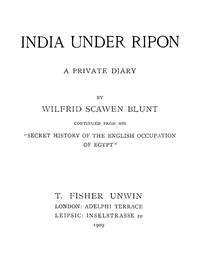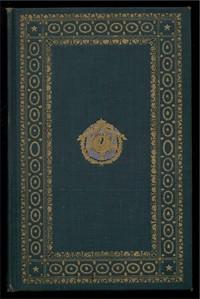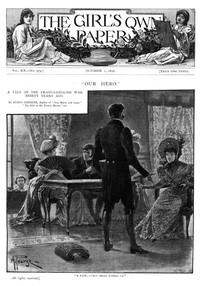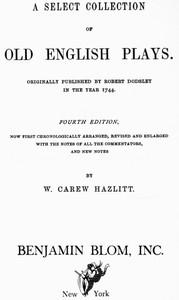Read this ebook for free! No credit card needed, absolutely nothing to pay.
Words: 111283 in 21 pages
This is an ebook sharing website. You can read the uploaded ebooks for free here. No credit cards needed, nothing to pay. If you want to own a digital copy of the ebook, or want to read offline with your favorite ebook-reader, then you can choose to buy and download the ebook.


: India under Ripon: A Private Diary by Blunt Wilfrid Scawen - India Description and travel; India History British occupation 1765-1947; Ripon George Frederick Samuel Robinson Marquess of 1827-1909
CHAP. PAGE
APPENDICES
INDEX 337
INDIA UNDER RIPON
INTRODUCTORY
I ought perhaps to have named this volume "The Awakening of India," because it describes the condition of Indian things at the time of Lord Ripon's viceroyalty, which was in truth the awakening hour of the new movement towards liberty in India, the dawn of that day of unrest which is the necessary prelude to full self-assertion in every subject land.
The journey it records was made under circumstances of exceptional interest at an exceptional moment, and should be instructive in view of what has happened since. It contains a foreshadowing of events which are under our eyes to-day, and suggests a solution of problems which, after long waiting and with a timid courage, is gradually being accepted as official.
The political situation in Lord Ripon's time was as follows: Mr. Gladstone, when he came into office in 1880, found himself at the head of an immense majority in the House of Commons, pledged to ideas of liberty in the East of which he had himself been the foremost preacher. With regard to India he had formulated the Liberal creed in a single sentence: "Our title to be in India," he had said, "depends on a first condition, that our being there is profitable to the Indian nations; and on a second condition, that we can make them see and understand it to be profitable." His predecessor's policy had proved a failure. It had been one of imperial expansion, of reckless finance, and of administrative coercion. It had resulted in a disastrous frontier war, in an immense financial deficit, and in the exasperation of the educated native community. There had been a terrible famine, the severest perhaps of the century. Many millions of the agricultural peasantry had died or were reduced to a condition of semi-starvation. Famine, to use the words of a popular Anglo-Indian writer of the time, had become "the horizon of the Indian villager; insufficient food the foreground." The forest laws, the salt tax, the ever increasing pressure of the revenue officers had driven some districts to the verge of revolt. The vernacular press, which would have denounced the Government as the cause of these evils, had been gagged in the towns; and disaffection, stifled in its expression but none the less real, was rife almost everywhere. The unrest was becoming, it was thought, dangerous. It was to remedy these evils, and to put the government of India on a footing of sounder economy, less war, and a closer confidence between rulers and ruled, that Lord Ripon was sent to India in the summer of 1880.
The choice of Lord Ripon as Queen Victoria's representative and Viceroy was, I believe, to a large degree Her Majesty's own. Little as she was in sympathy with Mr. Gladstone, she had this in common with the new programme, that the disaffection of her Indian subjects distressed her, and hardly less the arrogance with which they were treated by their fellow subjects of British origin. In the proclamation issued to the people of India after the Mutiny, her royal name had been appended to a promise of entire equality as between these and the others; and it touched her dignity that her promise should have remained so long unredeemed. She had, besides, a personal regard for Lord Ripon on account of his great integrity, and he seemed to her the man most reliable she could send to deliver a new message in her name to the people.
The Ilbert Bill was in itself but a very poor instalment of that promised equality between her English and her Indian subjects which he had been sent to give. Its object was to put a stop to the impunity with which non-official Englishmen, principally of the planter class, ill treated and even on occasion did to death their native servants. It was to give for the first time jurisdiction over Englishmen in criminal cases to native judges--instead of to judges and juries only of their own countrymen. Trifling remedy, however, though it was, it roused at once the anger of the class aimed at, and a press campaign was opened against Lord Ripon of unusual violence in the Anglo-Indian journals. The Ilbert Bill was described as a revolutionary measure, which would put every Englishman and every Englishwoman at the mercy of native intrigue and native fanaticism. The attacks against Lord Ripon were certainly encouraged by the Anglo-Indian officials; and presently they were repeated in the press at home, and to the extent that the Bill became a question in which the whole battle of India's future was being fought over and embittered. The "Times" took up the attack; the Cabinet was alarmed for its popularity, and the Queen was shaken in her opinion of her Viceroy's judgement. Lord Ripon was left practically alone to his fate.
Those who have read my "Secret History of the English Occupation of Egypt" will understand in what way the cause Lord Ripon was still defending at Calcutta was likely to affect me. It will be remembered that, in the time of his predecessor, Lord Lytton, I had paid a flying visit to India where I had enjoyed the then Viceroy's hospitality during two months at Simla. It had been a visit solely of personal friendship, made at the close of a long journey in Arabia, Turkey, and Persia, and that, notwithstanding a Tory education and much prejudice in favour of my countrymen, and in spite, too, of the daily society of such high Anglo-Indian officials during my stay as Sir John Strachey, Sir Alfred Lyall, and Lord Lytton himself, who had been at special pains to instruct me in their ways and methods of administration, it had left me more than doubtful of the advantage to native India of our imperial rule. Strachey's policy of "forward finance" seemed to me one especially ruinous to India--a policy of ever-increasing expenditure, ever-increasing public debt, and ever-increasing taxation. Neither he nor Lytton had been able to convince me that the immense poverty of the agricultural peasantry was not connected with our extravagant English administration. This last Lytton, in his lighter moods, was fond of describing as "a despotism of office boxes tempered by an occasional loss of keys."
Still I knew nothing for certain about native India. At Simla I had had no opportunity of conversing with so much as a single representative of its thoughts in opposition to the official views, nor had I caught more than a glimpse of the skeleton figures of the starving ryots as I passed rapidly by railway through their plains. When I once more, four years later, turned my thoughts to Indian travel, the single advantage I had acquired was that in the interval my political education in regard to East and West had progressed, and I had graduated in the severe school of personal experience. The case of the Egyptian fellah is not very different from that of the Indian ryot, and the economical needs of both are closely parallel. I had witnessed the Egyptian revolution, which was a revolt of the peasantry against a burden of debt, with my own eyes and at close quarters, and I had found myself behind the scenes in its struggle with European intrigue, a struggle where I knew the right to be with the native reformers, the wrong with our obstinate officials. I was determined that this time it should not be under official chaperonage I would travel, but as far as was possible on a basis of free intercourse with whatever inhabitants of the land I could get access to. As a Home Ruler in the East, I wished to ascertain what the true feeling of the country was towards its English masters, and what the prospect of India's eventually gaining her freedom.
Free books android app tbrJar TBR JAR Read Free books online gutenberg
More posts by @FreeBooks

: Memoirs of the Empress Josephine Vol. 1 of 2 by R Musat Madame De Claire Elisabeth Jeanne Gravier De Vergennes R Musat Paul De Commentator Hoey Frances Cashel Translator Lillie John Translator - Napoleon I Emperor of the French 1769-1821 Contemporaries; Jo


: Wagner and His Music-Dramas by Bagar Robert C - Wagner Richard 1813-1883; Wagner Richard 1813-1883. Operas






